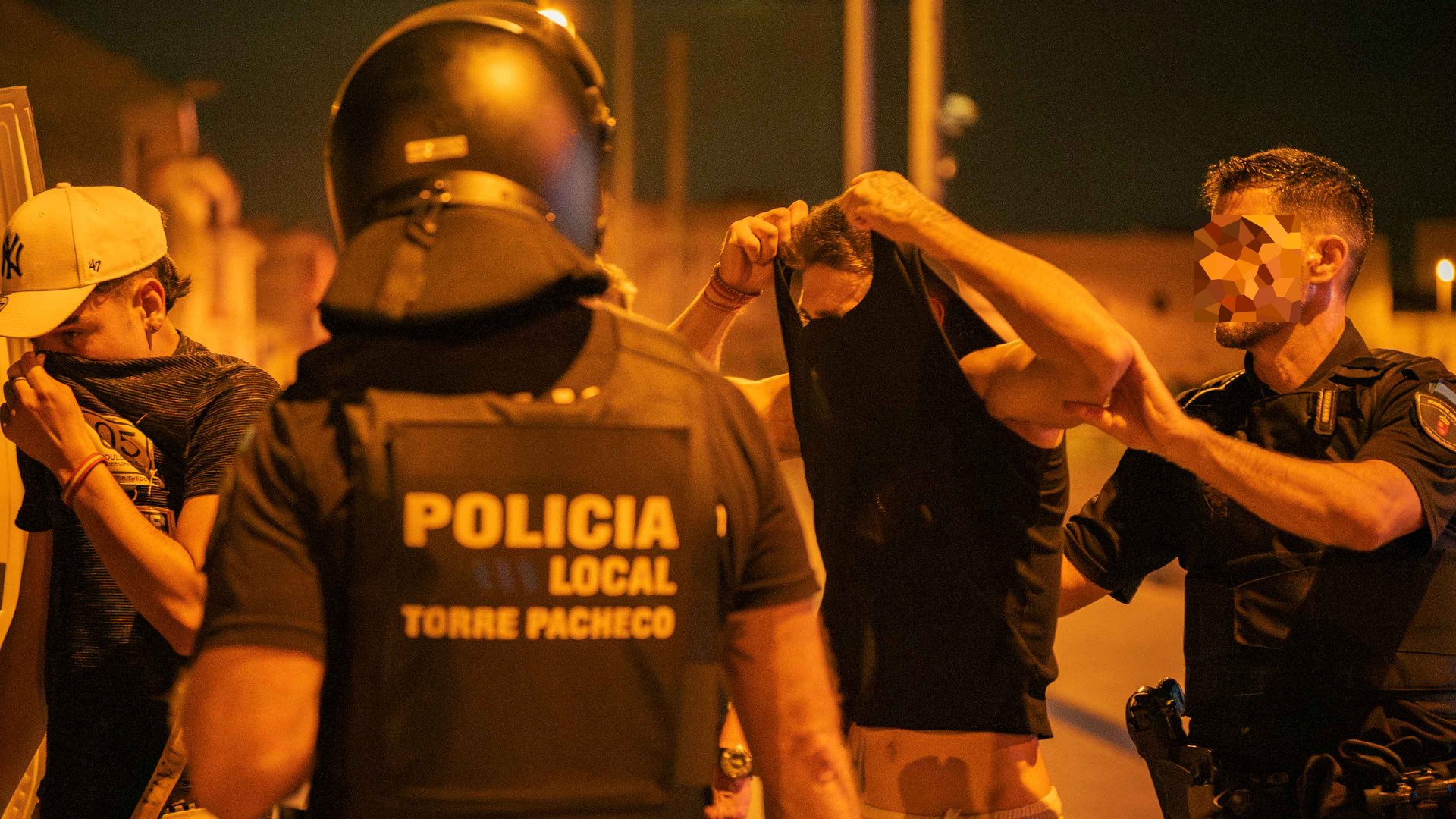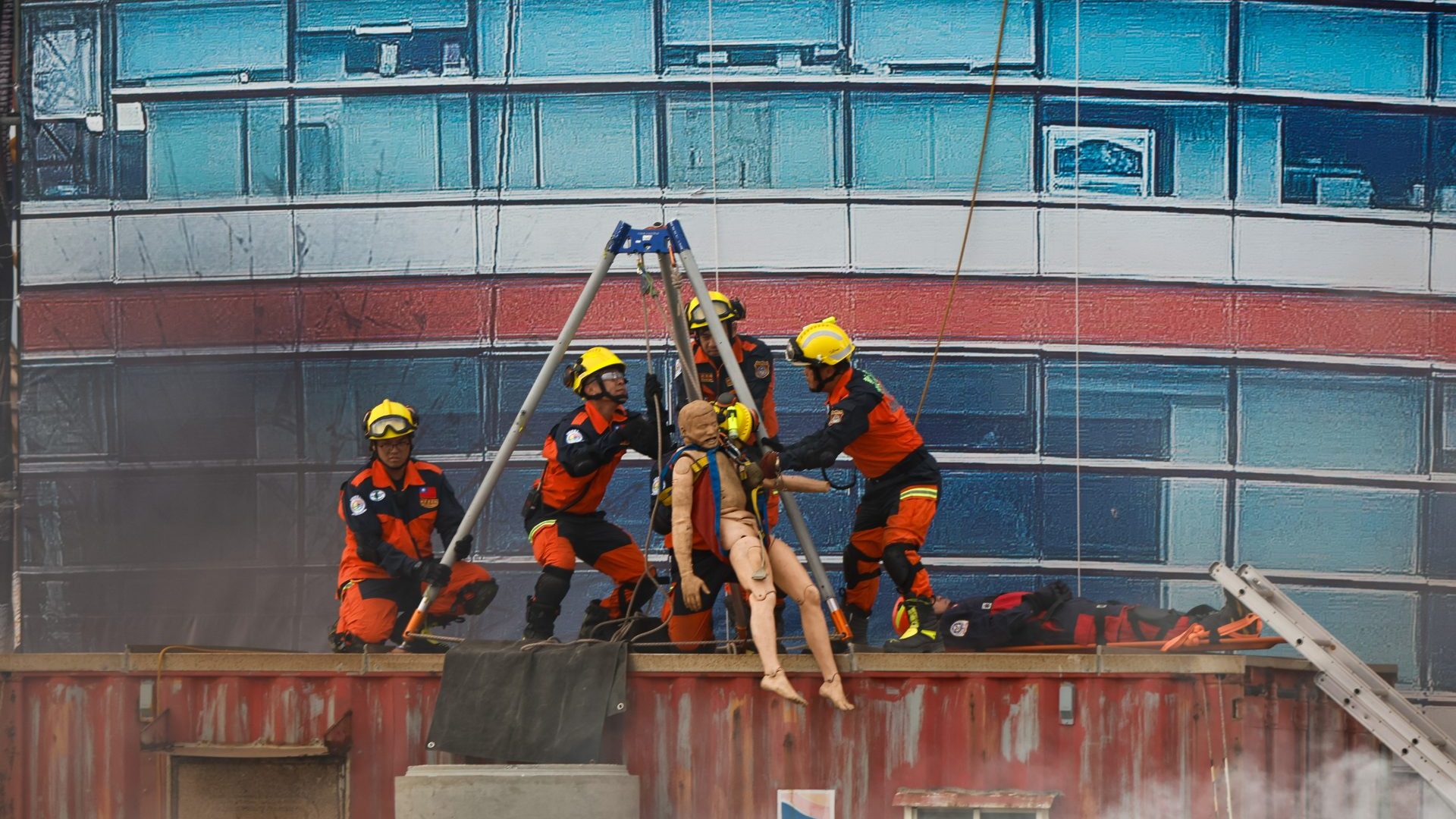As I make my way through Valencia’s bohemian Ruzafa neighbourhood, I spot some new graffiti on a shop shutter: “Guiris go home”. Years ago this was a working-class area, but now there are groups of guiris – a gently pejorative term for northern Europeans. These new arrivals generally hang out in Instagrammable cafes and craft beer bars that locals can’t afford, along with remote-working co-ops and uber-cool creative spaces for digital nomads. The menus are entirely in English.
I stop for breakfast in a traditional-looking bar. Inside, it’s dark and dingy. On the tiny, wall-mounted TV there’s footage of riot police facing off with gangs of masked men armed with bricks and baseball bats. I ask the barman to turn up the volume. The disturbances took place in Torre-Pacheco, a small town in Murcia, down in the south-east. It lasted for several nights, with clashes between mostly out-of-town far right groups and young Moroccans. The trigger? A 68-year-old local was attacked by three men he identified as north African.
The assault soon made national news and the far right rolled into town. This included the “Deport Them Now” group, which called for followers to “hunt” immigrants in the street. Vox, the far right party, has used the incident as evidence of what it calls a “criminal migrant invasion”.
Thinking back on the graffiti I saw earlier, I realise that the Spanish left and right each have their own unacceptable immigrants now: for the left, it’s the monied northern Europeans and Americans; and for the right, it’s north Africans and sub-Saharans.
The barman takes my order and I begin flicking through the newspapers. “Torre-Pacheco, the laboratory of the far right”, says one left wing Catalan paper. The right wing ABC goes with: “Torre-Pacheco, the town of 100 languages”, but then, reading the subhead, it seems this is not meant as a positive: “Almost 30% of the population in the Murcia municipality is immigrant, the vast majority from Morocco.” Murcia was where Vox gained its first major electoral foothold, in 2019. It is now polling around 19% nationally and has a good chance of forming part of a coalition government, formally or informally, at the next election.
Suggested Reading

Where have all the migrants gone?
My tomato toast and coffee arrive. On the TV, protesters gather outside a migrant centre, chanting: “Christian Spain, not Muslim Spain!” It’s a well-known slogan of the Spanish far right.
Vox recently announced that it wanted to deport eight million foreigners, including second-generation migrants, but later backtracked on the number. The centre right Partido Popular is being dragged rightward by this rhetoric. All of this ignores Spain’s demographic crisis – in the coming decades, the economy will need tens of millions more migrants, not least to prop up the wilting pension system.
I overhear two old men talking at the table next to me. Privately, many Spaniards do say that young, recently arrived north African men can be disproportionately involved in trouble; Moroccan migrants from Torre-Pacheco even said as much themselves. The man arrested for the beating was indeed north African.
But to blindly adopt the Vox narrative is to ignore the nearly one million Moroccans who are living peacefully in Spain. The far right fantasy that a migrant invasion is causing crime to surge simply isn’t borne out by the stats. There were 3.7 million foreigners in Spain in 2005 and there are around 7 million today, yet according to data cited by El Diario the crime rate is now nine points lower.
Another group of guiris go by outside, their fluent non-native English echoing through the bar. For all Vox talk about social integration and protecting Spanish culture, they say nothing of neighbourhoods like Ruzafa where wealthy foreigners price out locals, gentrify culture and don’t learn Spanish. Nor do they seem to have an issue with so-called “expat” enclaves spread around Spain. Do Brits in Benahavís, in Andalucía, integrate into Spanish society?
I leave and walk back through the neighbourhood. Last summer locals here protested against gentrification and rising rents, but there was no right wing presence. Vox’s anti-immigration rhetoric is selective. Incidents like those in Torreo-Pacheco are like catnip to their far right fantasies, reinforcing a world view that exists largely online and in their imaginations.
Conor Patrick Faulkner is a freelance writer living in Valencia. His work has featured in the Independent, the Guardian and Al Jazeera



